News
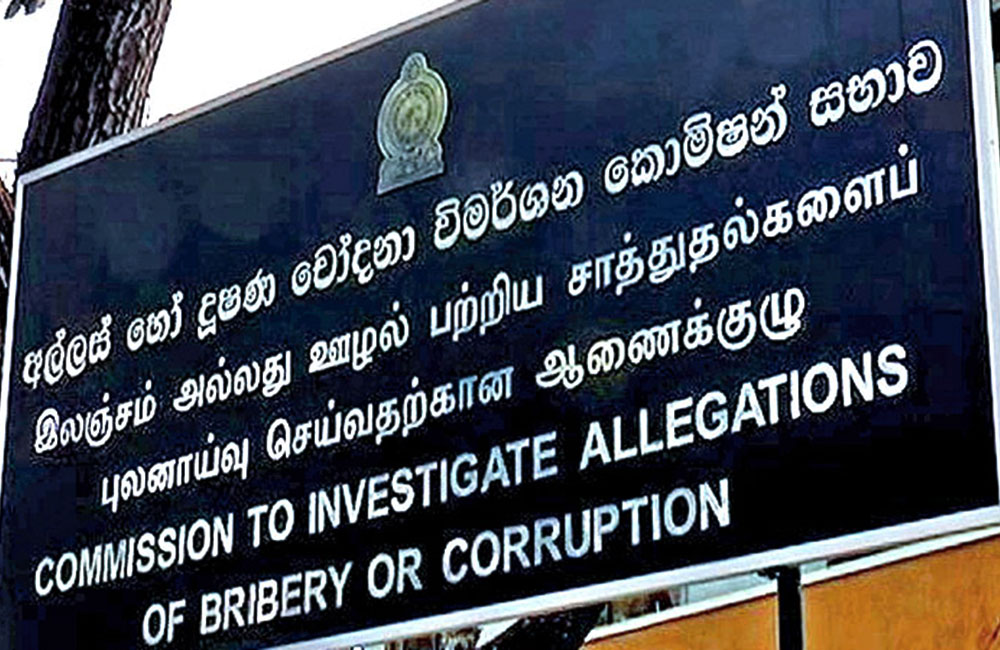
Bribery Commission DG gives undertaking to resign
The Director General of the Commission to Investigate Allegations against Bribery or Corruption (CIABOC) Kanishka Wijeratne today (07) gave undertaking to the Supreme Court to resign from office.
This was after the court granted leave to proceed with three Fundamental Rights (FR) applications filed challenging his appointment as the Director General of the Bribery Commission.
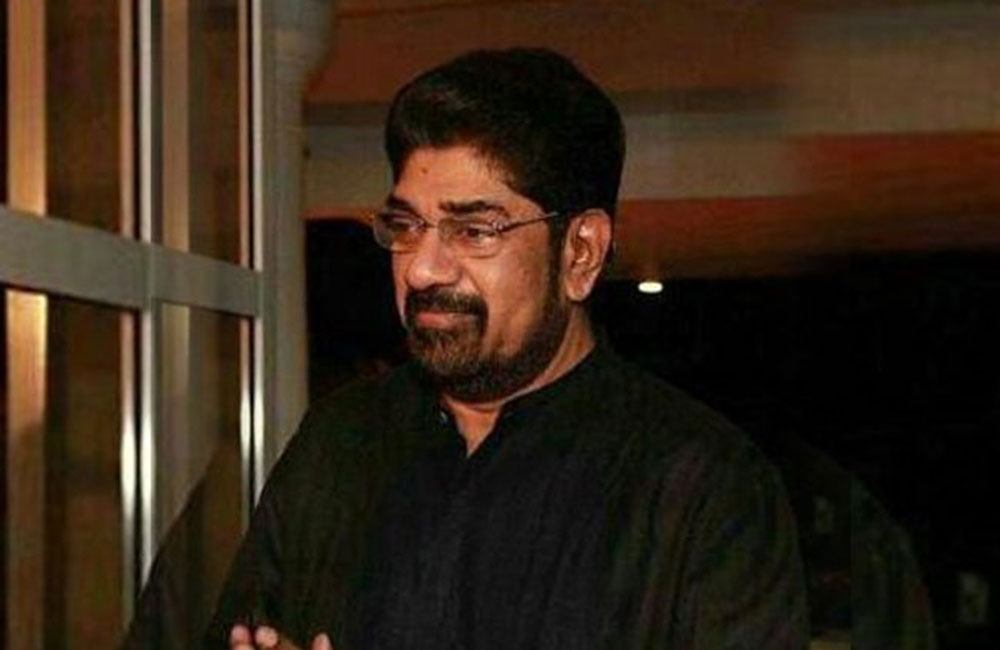
Colombo HC defers hearing of Keheliya’s corruption case
The Colombo High Court has ordered for the case filed by the Commission to Investigate Allegations of Bribery or Corruption (CIABOC) against former Health Minister Keheliya Rambukwella and the former Chairman of the State Printing Corporation, to be called for hearing on November 29.
This order was issued when the relevant plaint was called before Colombo High Court Judge Sujeewa Nissanka today (03).
At that time, the accused former minister Keheliya Rambukwella had also appeared before the court.
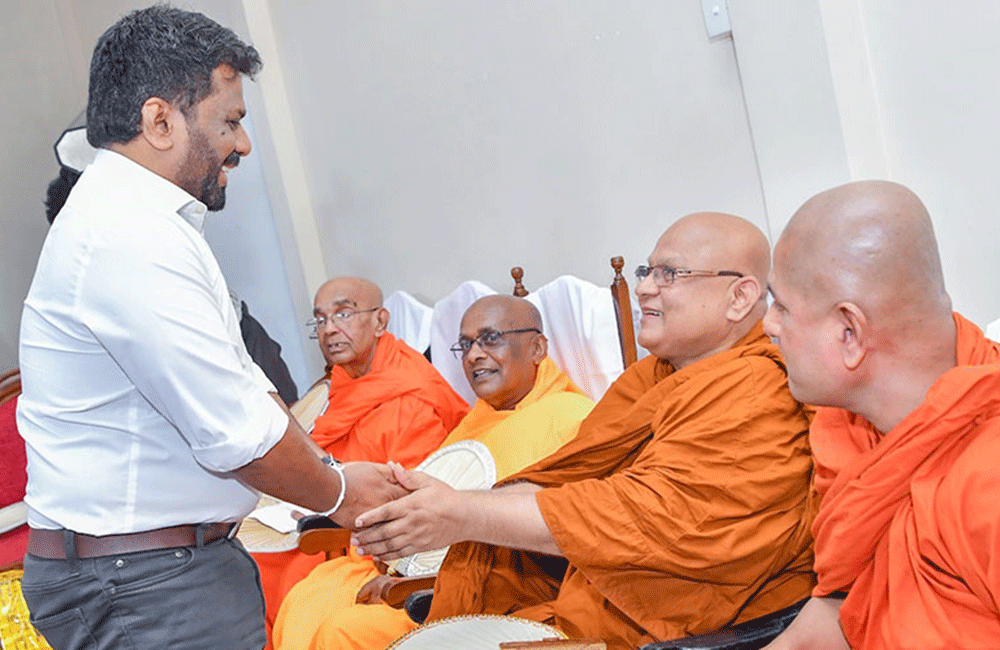
President Receives Blessings from the Maha Nayaka Thero of the Amarapura Maha Nikaya
President Anura Kumara Dissanayake visited the headquarters of the Amarapura Maha Nikaya in Wellawatte this morning (05) and received blessings from the Acting Maha Nayaka, Most Venerable Karagoda Uyangoda Maithri Murthi Maha Nayaka Thero of Amarapura Nikaya.
The Nayaka Theros of the Secretariat of the Amarapura Maha Nikaya were also present at this occasion, where they invoked blessings for the President.
During the discussion, the Chief Prelate emphasized the need to build a strong state by maximizing the use of the country’s resources. He noted that only then could Sri Lanka rise as an independent nation on the global stage.
The President acknowledged that the current period, with a General Election already announced, is a politically transitional time. He expressed his intention to accelerate progress on key tasks with full Parliamentary power following the election.
The Chief Prelate and the senior Theros also praised the example set by the President and his team, especially during the post-election period, where they ensured no violent incidents or disturbances occurred.
The Maha Sangha further highlighted that, during the last Presidential election, certain groups attempted to organize campaigns against the current President by using religion as a tool, but those accusations have now been proven false. However, the Maha Sangha cautioned the President to remain vigilant as similar smear campaigns may arise in the future.
President Dissanayake remarked that the people, through the results of this Presidential election, have shown the need to change the traditional political system. He also noted that the public has rejected the slander and fears that were created about his team, confirming that these were merely baseless rumours.
During the discussion, the Maha Sangha inquired about the possibility of a new constitution, to which the President responded by stating that he hopes to introduce a new constitution but emphasized that it will only be done following thorough discussions and a referendum. He pointed out that the previous governments implemented constitutional amendments without public consensus. The President also pledged to bring forward a constitutional amendment that meets the expectations of the people, after stabilizing the country to some extent.
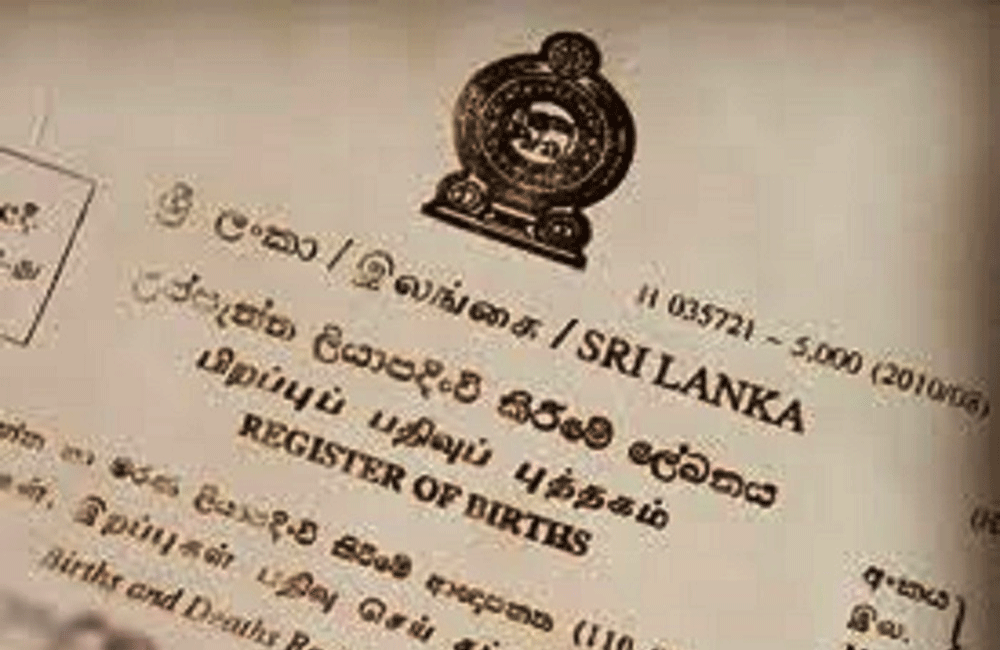
New program to give birth certificates for unregistered children
The Department of Probation and Child Care Services has introduced a programme to provide birth certificates for children whose births have not been registered.
Accordingly, officers of the Department have been assisting district child protection officers to identify such children and help with their school admissions.
Despite these efforts, a number of children still do not have birth certificates, and continue to face various difficulties, it has been reported.
Therefore, parents or guardians of children without birth certificates have been advised to obtain the assistance of the child protection officers of their respective district secretariat.
The services can be obtained free of charge, the Department of Government Information said.
The programme has been launched in collaboration with the Registrar General’s Department and the Department Probation and Child Care Services.
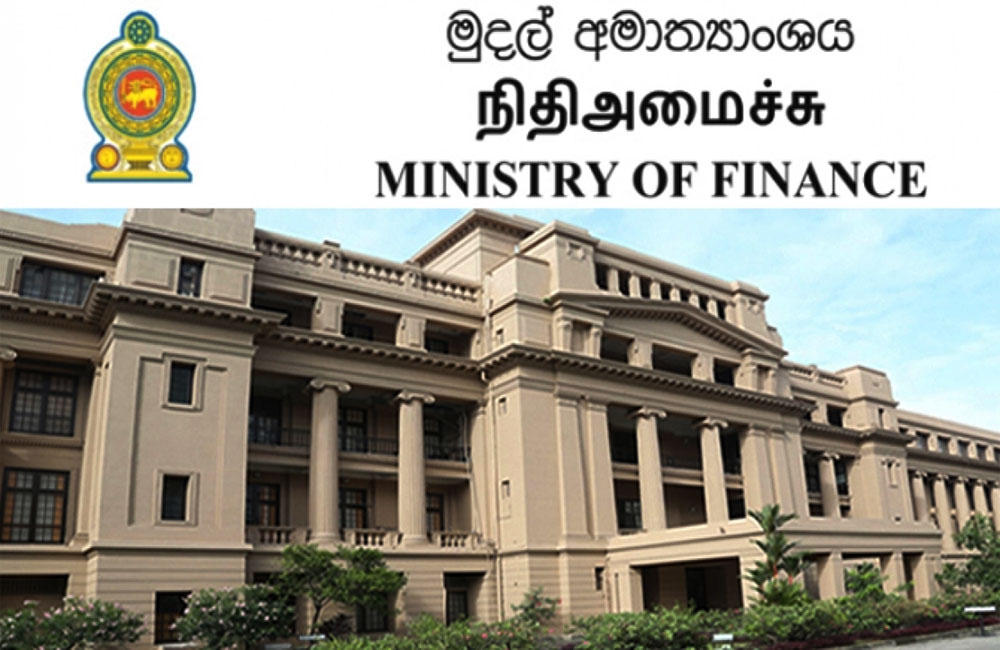
Vehicle Imports for Public Transport Begin
Imports for public transport vehicles, including buses, started on October 1.
The Ministry of Finance has announced that light vehicles, including cars, will be imported in the first quarter of next year.
Vehicle import process will be implemented in three phases.
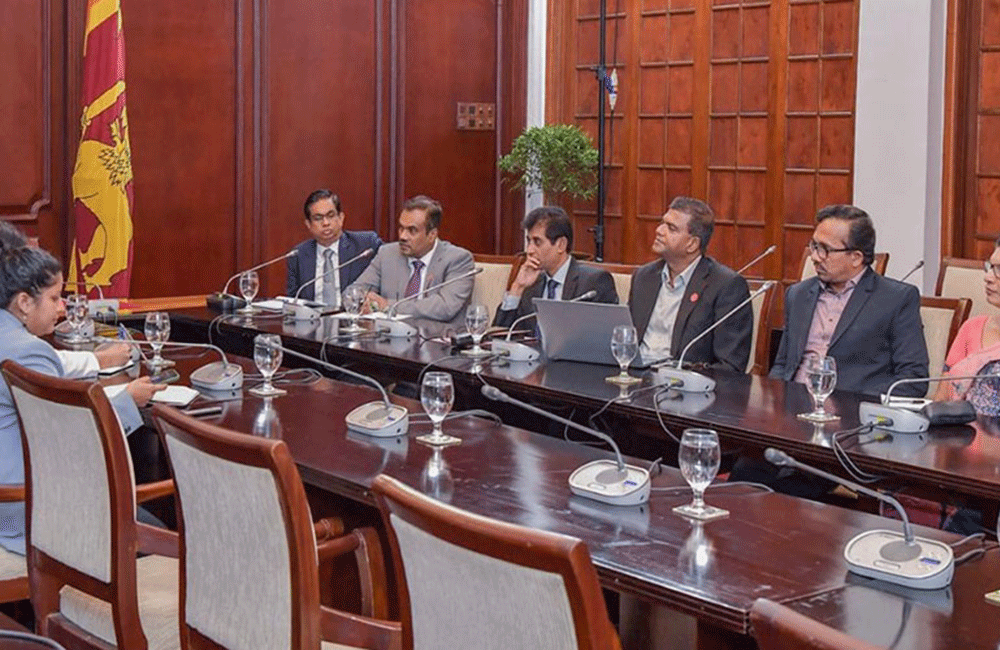
High-Level IMF Team Meets Sri Lankan Government to Discuss Economic Reforms
Published on: October 2, 2024 High-Level IMF Team Meets Sri Lankan Government to Discuss Economic Reforms A high-level delegation from the International Monetary Fund (IMF) arrived in Sri Lanka today (02) to engage with the newly formed government led by President Anura Kumara Dissanayake. The primary objective of the visit was to initiate discussions on the progress of the IMF Program and necessary steps towards the release of the fourth tranche of the $ 2.9 billion Extended Fund Facility.
The meeting, held at the Presidential Secretariat, featured cordial discussions between the IMF delegation and the economic team of the new government. Both parties reviewed the IMF programme thus far and outlined the way forward for future collaboration.
The IMF delegation expressed appreciation for the significant changes taking place in Sri Lanka, boosting the positive outlook on Sri Lanka under the present government.
The IMF team included Dr. Peter Breuer, Senior Mission Chief; Dr. Sarwat Jahan, Resident Representative and Ms. Manavee Abeyawickrama, Economist.
Representing Sri Lanka were key members of the Economic Policy Council, including Dr. Harshana Suriyapperuma, Prof. Anil Jayantha, Chair of the Economic Policy Council & Senior Advisor to the President on Economic Affairs & finance. Mr. Sunil Handunnetti, Prof. Seetha Bandara Ranathunga, Mr. Sunil Gamage, Mr. Duminda Hulangamuwa Senior Advisor to the President, Dr. Nandasiri Kihimbiyahetti, Prof. O. G. Dayaratne Banda and Mr. Amarasena Athukorala.
This meeting marks a crucial step in reinforcing Sri Lanka’s commitment to economic stability and securing continued support from the IMF.
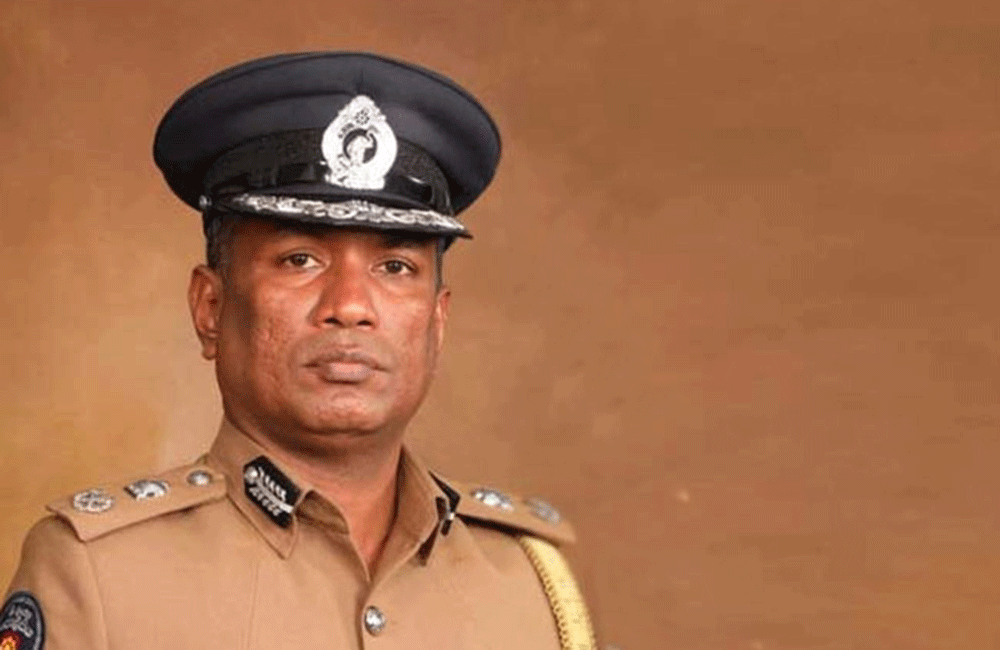
New Director appointed to State Intelligence Service
The Deputy Inspector General of Police (DIG) Dhammika Priyantha has been appointed as the new Director of the State Intelligence Service (SIS).
This appointment comes following the retirement of former Director of the SIS Major General Suresh Sallay.
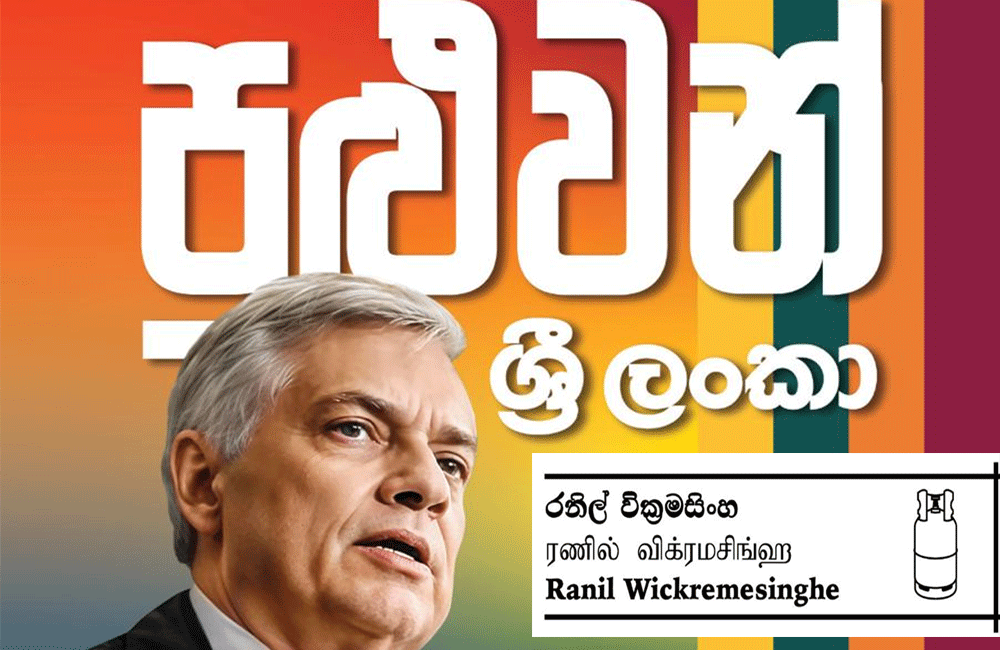
Parties that backed Ranil to contest general election under ‘Gas Cylinder’ symbol
All political parties that supported former President Ranil Wickremesinghe at the recent Presidential Election are to contest the upcoming General Election under the New Democratic Front (NDF), with the ‘Gas Cylinder’ as their symbol.
Former President Wickremesinghe had also contested the recent presidential election under the symbol of the ‘Gas Cylinder’, albeit as an independent candidate.
Political sources told Ada Derana, earlier today, that former MPs who supported Wickremesinghe are preparing to contest the upcoming General Election under either the ‘elephant’ symbol or another common symbol.
It was reported that the opinion of the Election Commission had been sought to obtain the ‘Gas Cylinder’ symbol and that a final decision was to be taken after the commission’s decision is conveyed.
The group of former MPs had gathered at the Election Operations office of the former president at Flower Road in Colombo today (02), in order to reach the final decision regarding the symbol and the alliance they will contest under in the upcoming election.
It was further reported that if the former MPs were unable to obtain the ‘Gas Cylinder’ symbol, they would most likely contest under the symbol of the ‘Elephant’ or another common symbol.
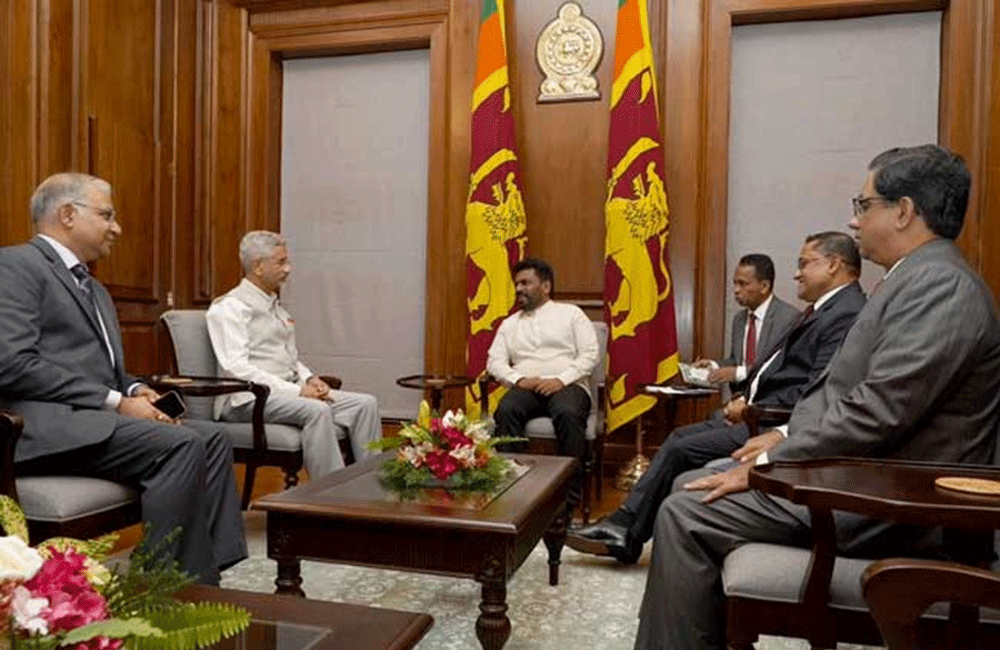
Jaishankar extends invitation for President Dissanayake to visit India
External Affairs Minister of India Dr. Subrahmanyam Jaishankar who was on a one-day official visit to Sri Lanka met with his Sri Lankan counterpart, Foreign Minister Vijitha Herath for bilateral talks at the Ministry of Foreign Affairs this afternoon (04). Earlier in the day, Minister Dr. Jaishankar was received on arrival at the Bandaranaike International Airport by Foreign Secretary Aruni Wijewardane.
Dr. Jaishankar was the first high-level foreign dignitary to visit Sri Lanka after the government of President Anura Kumara Dissanayake assumed office on 22 September. The main objective of the visit of the External Affairs Minister of India was to congratulate the new President and the government and to demonstrate India’s commitment in moving forward with the strong bilateral partnership, the Ministry of Foreign Affairs said in a statement.
The discussions between the Sri Lankan Foreign Minister and the visiting External Affairs Minister of India focused on a range of issues of mutual interest including in the areas of economic and development cooperation, social security, culture, cooperation in the regional and multilateral fora as well as fisheries.
Foreign Minister Vijitha Herath welcomed the excellent bilateral cooperation between Sri Lanka and India, and India’s support for the economic progress of Sri Lanka. External Affairs Minister Jaishankar congratulated his Sri Lankan counterpart on the latter’s assumption of office, and expressed India’s continued support towards economic recovery and stability of its close neighbour. Adding that Sri Lanka is at the centre of India’s ‘Neighbourhood First’ policy, Minister Jaishankar stated that he looks forward to working closely with Foreign Minister Herath, and the new government, the statement added.
Foreign Secretary Aruni Wijewardane and senior officials of the Ministry of Foreign Affairs were associated with the bilateral talks at the Ministry of Foreign Affairs, where the visiting Indian External Affairs Minister also signed the Guest Book.
Foreign Minister Vijitha Hearth hosted a working lunch for his counterpart and the delegation.
During his visit to Colombo, External Affairs Minister Jaishankar paid courtesy calls on President Anura Kumara Dissanayake and Prime Minister Dr. Harini Amarasuriya. On behlaf of Prime Minister Narendra Modi, Minister Jaishankar extended an invitation to President Dissanayake to undertake a visit to India at a mutually convenient date.
Minister Jaishankar was accompanied by a delegation of senior officials from the Ministry of External Affairs of India and the High Commissioner of India in Colombo, Santosh Jha.

Bus fares reduced
Bus fares have been reduced by 4.24%, effective from midnight today (Oct. 01), according to the National Transport Commission (NTC).
Meanwhile, the minimum fare has been reduced by one rupee to Rs. 27.
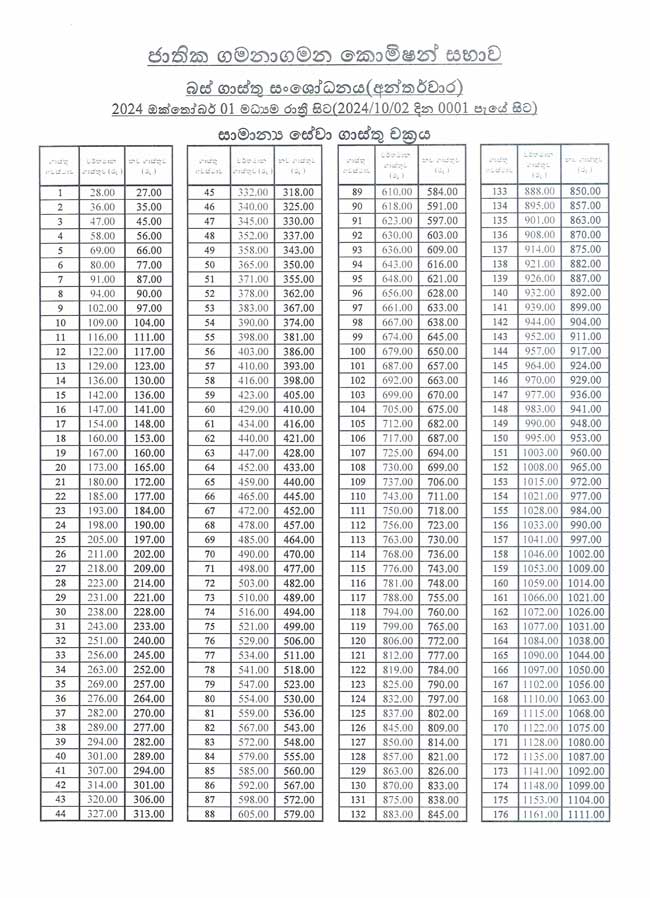
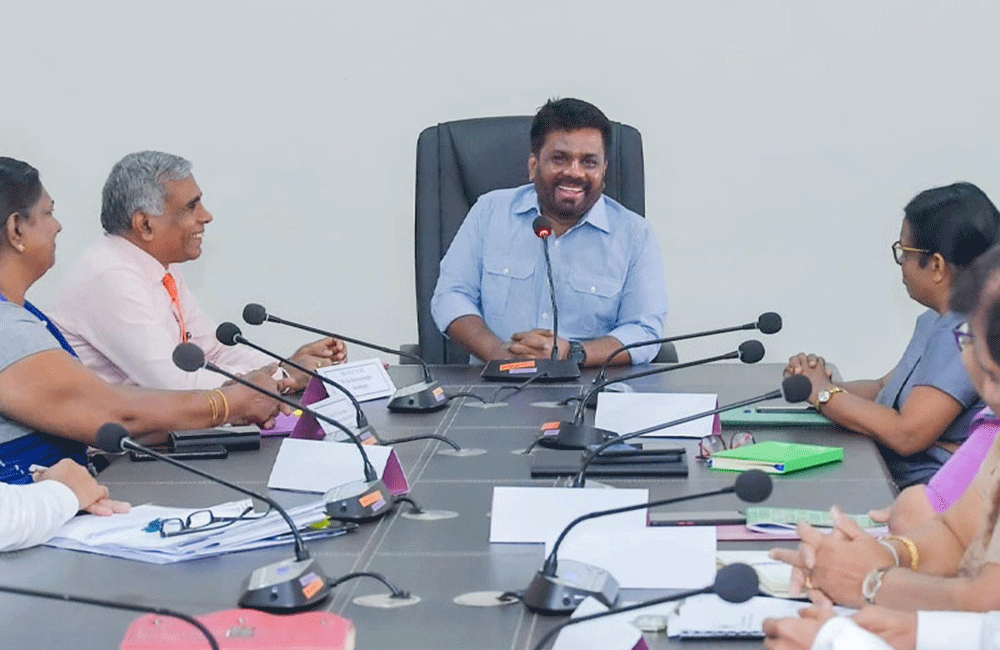
President says committed to building an efficient, people-centered public service
President Anura Kumara Dissanayake affirmed his commitment to supporting public servants who dedicate themselves to creating an efficient, citizen-focused public service, the President’s Media Division (PMD) said.
He emphasized that unlike under previous administrations government officials working in the interest of the people will no longer face political retaliation.
The President made these remarks during a meeting with ministry officials after assuming office as the Minister of Agriculture, Lands, Livestock, Irrigation, Fisheries, and Aquatic Resources this morning (03), the release said.
In a comprehensive discussion with ministry secretaries and senior officials, the current state and future plans of the Ministry of Agriculture were thoroughly reviewed. The President highlighted the critical role the ministry plays in eradicating rural poverty, noting that the performance of government officials will be decisive in achieving this goal.
He also acknowledged that in this year’s presidential election, the public placed their trust in a new political direction, rejecting the old political culture. This shift, driven by the economic challenges citizens face and their dissatisfaction with the public service, marks a significant turning point in the country’s governance, the PMD reported.
President Anura Kumara Dissanayake emphasized his commitment to building an efficient, people-centered public service, stating that he will take all necessary steps to achieve this. He noted that the public believes widespread fraud and corruption have contributed to the country’s economic collapse and that the current mandate is focused on preventing such practices.
The President called on public servants to uphold the trust placed in them by the people and to dedicate themselves to fulfilling their responsibilities with integrity. He stressed that the fight against fraud and corruption in the state depends on the commitment of government officials.
President Dissanayake further underscored the importance of creating an effective and efficient public service that meets the needs of the citizens. He assured that under his leadership, there will be no room for political revenge, unjust transfers, or denial of promotions in the public sector. He urged public servants to work diligently to build a service that earns the confidence and satisfaction of the people.
President Anura Kumara Dissanayake emphasized that the next forty days will be a transitional period, during which public servants must ensure the continuity of the public service without disruption, it said.
He also indicated that new ministers will be appointed to these ministries following the next general election, the PMD reported.
The President reassured public officials that he will not subject them to public questioning by the media, as previous leaders have done. He made it clear that he does not support such media spectacles and is committed to creating a public service that meets the needs of citizens while upholding the dignity of public servants.
-PMD-
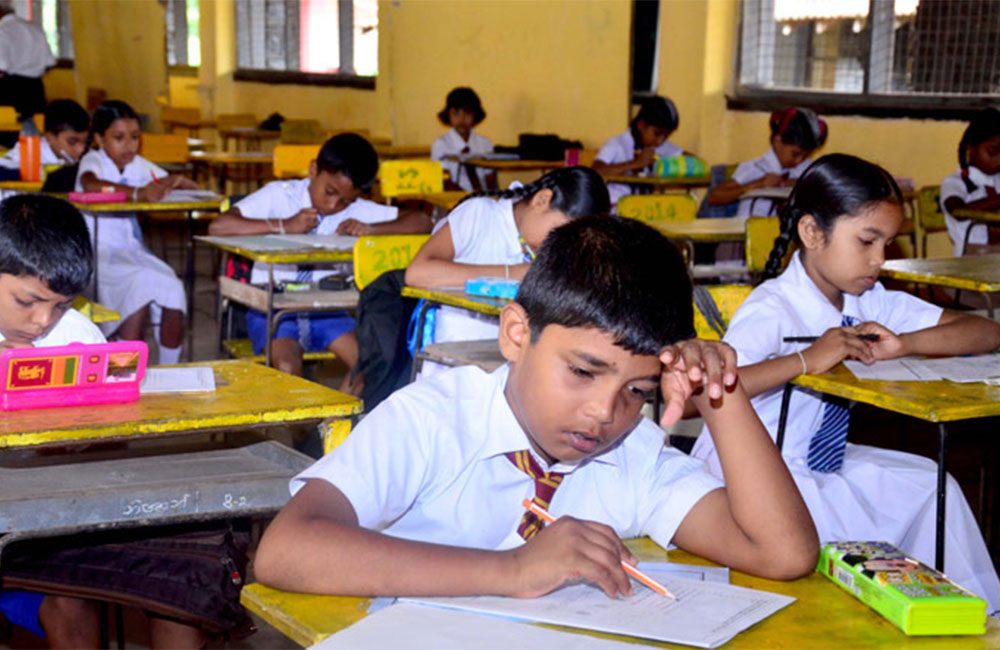
Grade 5 Exam Evaluations Suspended For Two-Weeks
Sri Lankan President Anura Kumara Dissanayake has ordered a two-week suspension of the evaluation of answer sheets for the Grade 5 Scholarship Examination.
According to a press statement from the President’s Media Division, the decision followed discussions held last evening (30th) with a group of parents protesting issues related to the examination.
During these discussions, parents claimed that not five, but eight questions from the Grade 5 Scholarship Examination had been leaked prior to the exam. They requested the President to instruct officials to re-conduct Paper One of the examination.
In response, the President directed that the evaluation process be halted for two weeks to address the concerns raised.
Page 32 of 534